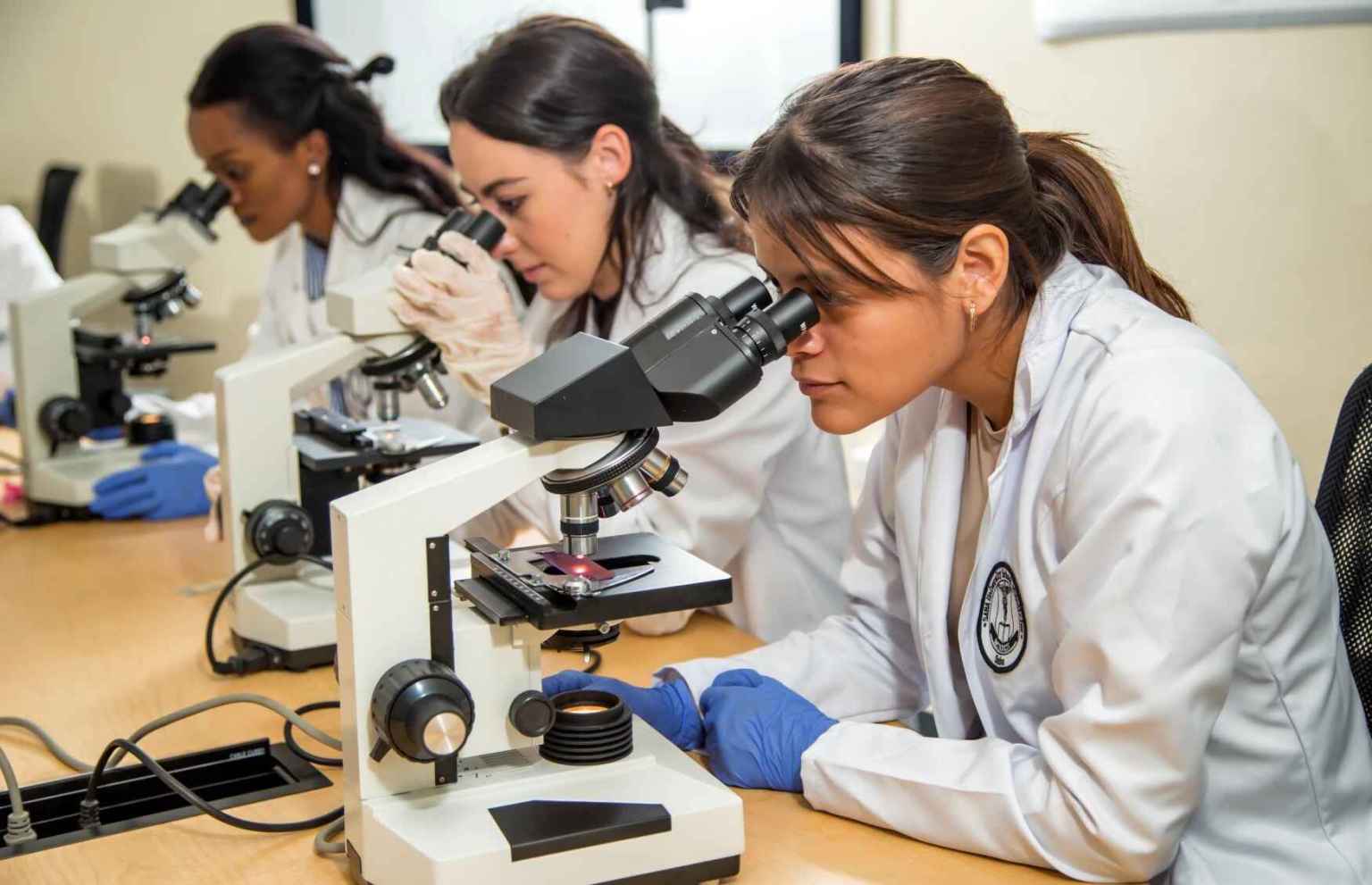
What Is a Medical Residency?
Read on to learn all about residencies, what you can expect from a medical residency program, and tips to succeed.
During a student’s final year of medical school, they begin applying for medical residences — a crucial part of the journey to becoming a doctor. A medical residency provides the opportunity to get more hands-on skills through experience, training, and mentorship. Wherever you are on your journey towards becoming an MD, whether you’re already in medical school or still considering joining a medical program, you’ll probably have many questions. Read on to learn what you can expect from a medical residency program.
What Is a Medical Resident?
A medical resident is a doctor in training participating in a graduate medical education (GME) program. They will have graduated medical school, earned their MD, and now train alongside licensed physicians in their chosen specialty area.
Residents are commonly found working at doctors’ offices or hospitals as they continue their training and education in a specialized field of medicine. Residents can work this way for three to seven years, known as residency. While you remain a student during your clinical rotations, you are no longer a student, but a doctor with real responsibility.
When considering what a medical residency is like, there are multiple answers that depend on the chosen specialty. Most medical residents provide direct care to patients by diagnosing, managing care, and treating health issues. Both doctors and senior residents supervise residents. A resident’s chosen specialty can include surgery, pediatrics, radiology, obstetrics, gynecology, or anesthesiology. Alongside working with patients, residents will continue their education by attending seminars and conferences.
Medical Residents vs. Doctors
Residency programs are a crucial step in the journey to becoming a doctor. A medical resident is a doctor in training and is in the process of earning their license. Meanwhile, doctors are already fully licensed after completing their residency program.
How Long Is a Medical Residency?
The length of a residency will largely depend on the specific medical field, although they usually last between three and seven years. The longest medical residency programs tend to be related to surgical practice, while the shortest residents are usually in family medicine.
What Is It Like to Be a Medical Resident?
Medical residents can work a maximum of 80 hours a week, with breaks. While the hours can vary, residents can expect to work around 10 to 12 hours most days.
A typical shift for a medical resident may start by checking through reports on your patient by the resident on the previous shift. Then, complete pre-rounds of patients before the attending physician arrives. This includes examining patients and checking their lab results and consultation reports. Senior residents will oversee interns and answer any questions. After completing rounds with the attending physician, residents will usually complete designated tasks, such as ordering tests, reviewing results, and completing discharge paperwork. It’s common for a medical resident to have a lecture period during the day.
How Does an Internship and Residency Work?
An intern is a physician in their first year of residency following medical school. They practice medicine under the supervision of a licensed physician. Residents work at doctors’ offices, clinics, or hospitals to continue their training and education in a specialized area of medicine.
During residency, a medical resident will gain extensive experience in ordering and interpreting diagnostic tests, performing patient examinations, diagnosing, managing, and treating health conditions, recording medical histories, and performing medical procedures. It’s common for junior residents to start their residency with more supervision and less complicated tasks. Their responsibilities continue to increase as they gain more experience and training.
Is Medical Residency Difficult?
While all residents will handle their experience differently, residency is both a challenging and exciting experience, especially as it provides exposure to what working in a medical setting is really like. The working hours are undoubtedly tough, especially when starting and adjusting to the new routine. But by the end of the first year, you’ll see that your speed, knowledge, confidence, and experience have improved dramatically, and you’re now functioning as a seasoned physician.
What Do I Need to Become a Resident?
Medical residents must obtain a medical degree from an accredited institution before participating in a residency program. Before applying to most medical schools, medical students must have a four-year undergraduate degree. Medical school consists of four years of full-time study, with students required to attend classes and complete practical training. In their third and fourth year, medical students can select an area of medical specialty.
Medical residents must have the correct license to practice medicine in their state. Most states offer a training license that allows residents to practice medicine with certain restrictions. For instance, medical residents must not practice without the supervision of a licensed senior medical professional. After they’ve completed residency training, they are then able to apply for a full license.
How Much Do Medical Residents Make?
The institution and the training year typically determine the average salary for first-year medical residents, with the salary of first-year medical residents averaging around $60,000 according to the AAMC. Medical residents’ salaries increase as they progress through their residency program, with fourth-year medical residents earning an average of $67,000 and eighth-year medical residents earning in the region of $80,000.
Tips for Success During Your Residency
There’s no specific formula to preparing for medical residency, but there are ways you can increase your chances of success. Here are some tips for building a foundation for your medical residency program.
- Learn from the best: Find great mentors whose skills and work ethic you’d like to emulate.
- Stay motivated and focused: Apply the right mindset for your residency by committing yourself to lifelong learning and exploring the world of medicine.
- Look after yourself: Focusing on your own self-care, including sleep hygiene, a proper diet, and regular exercise, are crucial in enabling you to serve others effectively.
- Observe at all times: Sometimes you need to stop talking and instead watch, listen, and observe. Always be open to learning and taking in all types of information.
- Connect with your community: You’re not alone through your medical residency. There are other residents, interns, and doctors who are there to help and support you and provide mentorship and teaching moments.
A medical residency is a crucial step in your journey to becoming a doctor and will teach you how to apply what you’ve learned in medical school to build the skills, confidence, and experience you need. At Saba, we have an incredible residency attainment rate, meaning your chances of success is truly strong. Contact Saba University School of Medicine today to learn more about medical residencies and how you can start your journey to becoming an MD. You can also check out our latest events and webinars to learn more.

For Prospective Students
SUSOM is committed to supporting prospective students throughout the admissions process. Please click the following links for detailed information about each topic: